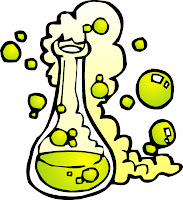Many people are looking for “chemistry” in their love li ves.
ves.
They want someone who stirs up their feelings of admiration, attraction, and desire.
It’s like they want to be handed a surprise gift. A neat little package containing all of the feelings we associate with love, especially the way “true love” and “love at first sight” is conveyed in the movies and songs that define our culture.
Is it any surprise, then, that divorce rates are so high? Is it any surprise so many people are in serial relationships that last only months or a few years before they renew their search for “better chemistry?”
Love is not chemistry. Love is a choice.
The feelings we associate with love (admiration, desire, possessiveness, generosity, et cetera) are just that; feelings associated with love, especially when choices to love are being reciprocated and the challenges we face are relatively small. And these feelings are all good. But they are not love.
Love is decision. It is a verb. It is the process of making every day choices that honor a relationship which includes commitments of serving another persons, whether that be a new born child you barely know, a parent you’ve known all your life, or your fiance’ on your wedding day.

It is the every day decisions to make little or big choices to honor this desire and decision to love that shapes us into loving persons.
Consistently choosing to love makes us better people. Every choice to love reinforces one or more virtues which become the habits which shape our character.
Put another way, love is what we choose to give to others in the process of being the best persons we can be.
At the same time, our choices in how to love others are most wise when we are acting in love toward them in ways that help them to become the best persons they can be.
Sometimes, that love is shown by accommodating their desires. Other times, it is shown by recognizing that their desires are contrary to their own best interests. (It is not loving, to offer an alcoholic a drink or a child a viper, no matter how often the alcoholic or child request it.)
Our acts of love do not guarantee that others will return our love or become more loving in the ways they try to love us, but they make it more likely. But most importantly, living the decision to love will at the very least make us better people.
A great reflection on these truths is found in Matthew Kelly’s Seven Levels of Intimacy: The Art of Loving and the Joy of Being Loved:
Love is a choice, not a feeling. Feelings come and go, and if we choose to base our most important relationships on how we feel at any particular moment, we are in for a rough and rocky journey.
Love is verb, not a noun. Love is something we do, not something that happens to us.
Stephen Covey tells a great story. On this particular day he had been presenting a series of talks about proactivity, which is, basically, the idea that “as human beings we are responsible for our lives. Our behavior is a function of our decisions, not our conditions. We can [and must learn to] subordinate our feelings to values. We have the initiative and responsibility to make things happen.”
After his presentation, Covey was approached by a man who said, “Stephen, I like what you are saying. But every situation is so different. Look at my marriage. I’m really worried. My wife and I just don’t have the same feelings for each other we used to have. I guess I just don’t love her anymore and she doesn’t love me. What can I do”
“The feeling isn’t there anymore?” Covey asked.
“That’s right,” the man affirmed. “And we have three children we’re really concerned about. What do you suggest.”
“Love her,” Covey replied.
“I told you The feeling just isn’t there anymore.”
“Love her.”
“You don’t understand. The feeling just isn’t there”
“Then love her. If the feeling isn’t there, that’s a good reason to love her.”
“But how do you love when you don’t love?”
“My friend, ‘love is a verb. Love–the feeling–is a fruit of love, the verb. So love her. Serve her. Sacrifice. Listen to her. Empathize. Appreciate. Affirm her. Are you willing to do that?”
Our modern culture equates intimacy with sex and proclaims love is a feeling. On both counts we are being massively deceived, and we shouldn’t allow misguided philosophies to determine the direction of our lives. Sex is only the shadow of intimacy; feelings are just the aroma of the flower we call love… and flowers are not always in bloom.
Love is a choice, and the only truly sensible choice in any situation . . . and a difficult choice when it means not giving someone what she wants or not telling someone what he wants to hear….Every moment is an opportunity to choose love. The heartache begins when we choose to love and our love is rejected, misunderstood, or, perhaps most painfully, not reciprocated.
You can only choose to love. You cannot determine whether someone else will love you. But if in every situation you choose to love. Nothing and no one can diminish you. Others may choose not to love you in return, but that doesn’t diminish you. Their failure to love is their failure alone and diminishes only themselves.
When you choose not to love, you commit a grave crime against yourself. You may hold back your love to spite another person, or in an attempt to hurt another person. Withholding love is a bit like drinking poison and expecting the other person to die.
You may hold back your love in the name of security, or safety, but these are only illusions, and in time you will stand a dwarf compared to the person you could have potentially become if you had chosen to love.
Love is a choice. When we choose love, our spirit expands. When we choose not to love, our spirit shrivels. (emphasis added)
[amazon_image id=”0743265122″ link=”true” target=”_blank” size=”medium” ]The Seven Levels of Intimacy: The Art of Loving and the Joy of Being Loved[/amazon_image]
